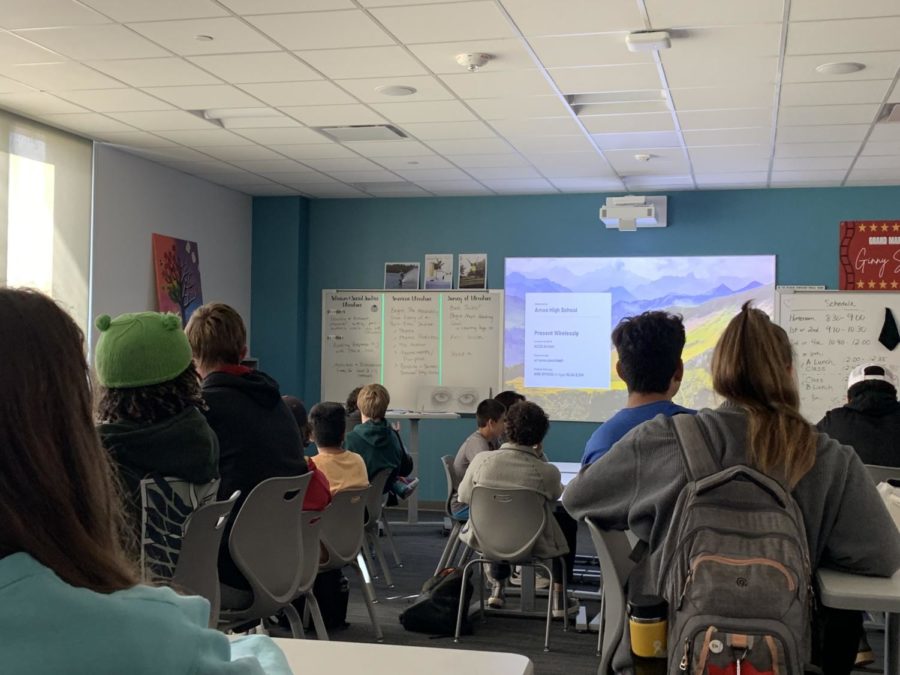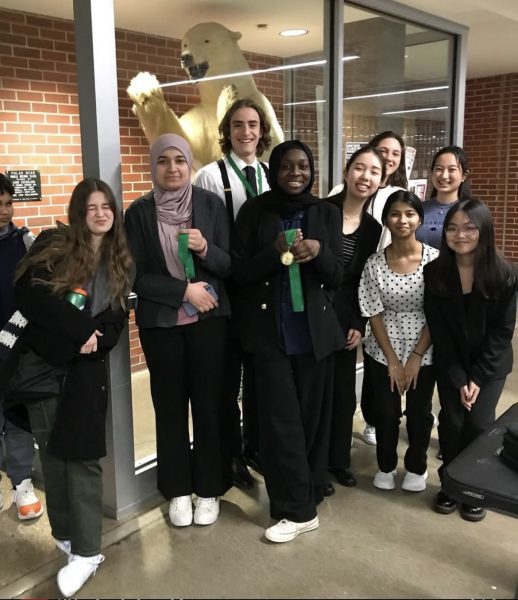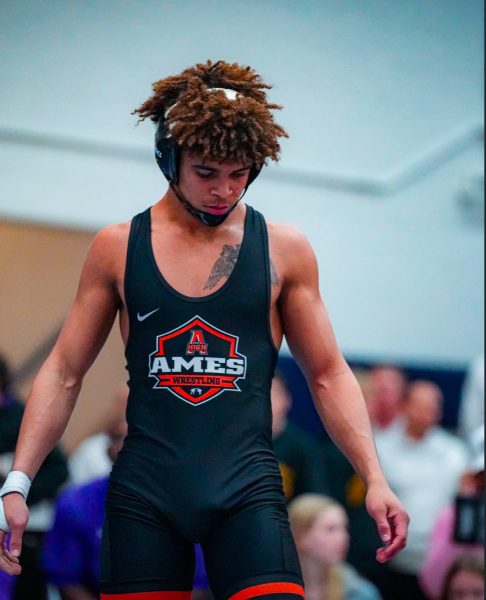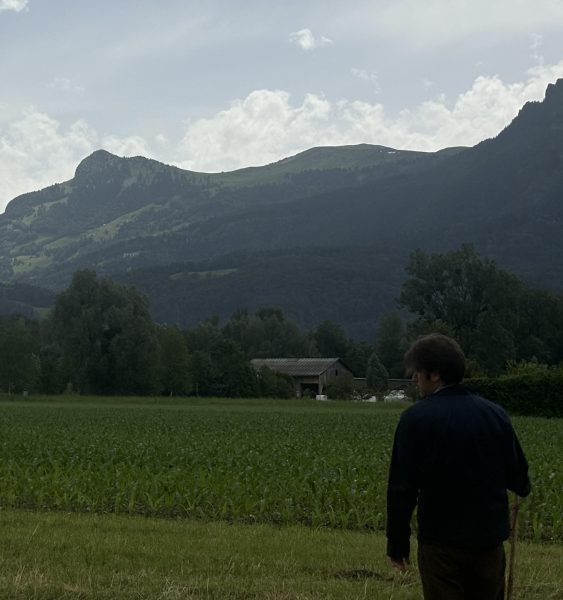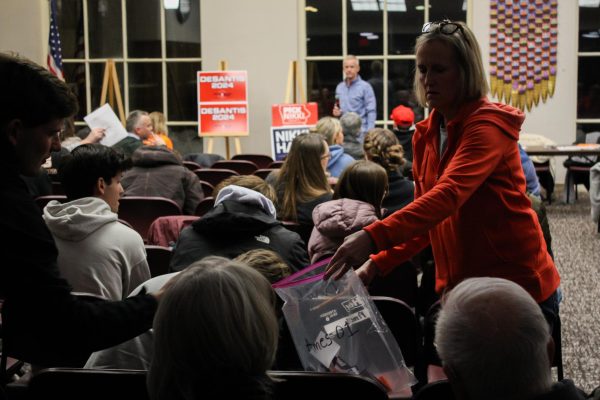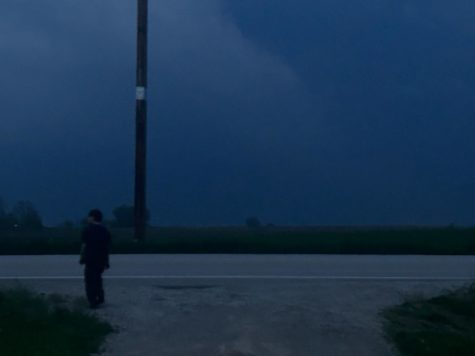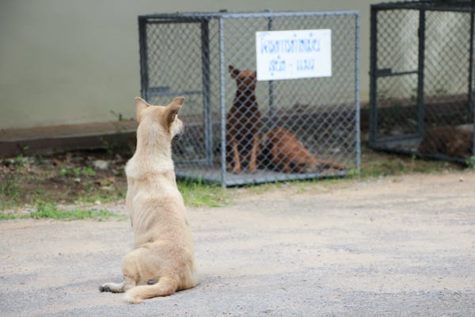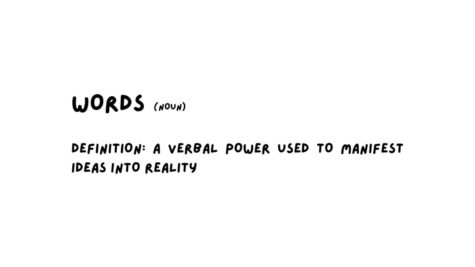The Relationship Between the Political Environment and the Teacher Shortage
A decade in review. Chuck Ripley, an Ames English Teacher, revisits a project addressing misconceptions targeting teachers.
Ellyn Foglesong/The Web Special
An Ames High Class Overflowing with Students. What is a Class Without A Teacher?
In recent years the decline in available and enthusiastic educators has been excruciatingly prominent, and to be painstakingly honest, it wasn’t unprompted, nor is it new.
A report from American Progress states: Since 2010, total enrollment nationwide in teacher preparation programs has declined by more than one-third.
There are many attributable causes of the Teacher shortage. However, one of the more tangible reasons is that they are at the blunt end of various attacks- whether malicious or the cascade of inherent misunderstandings, they would influence anyone’s work ethic, motivation, and career satisfaction. Yet the criticism still targets teachers, not those who instigate and share disinformation.
Many politicians in our mainstream and local media have geared their attacks toward educators, essentially punching down at the foundation of the success and social preparation for new generations in America. The rhetoric has seemingly evolved, but the scheme and platforming of it have been rampant for over a decade.
Last year alone, Iowa Senator Jake Chapman (R from District 10) claimed teachers had a “sinister agenda.” According to The Des Moines Register, he insisted teachers were exposing children to “obscene materials.” In doing so, he proposed a bill that would ban several materials for something as simple as mentioning explicit topics. Additionally, Republican Governor Kim Reynolds proposed to allocate pupil funding (from public schools) towards scholarships and funding students so they can choose what schools they wish to attend. While this is just the tip of the iceberg, the integrity and accessibility of public schools and education are diminishing from political involvement.
Ten years ago, these ambushes questioned their (teachers) contracted working hours, and the pushback was more often instigated by the general public and amplified by politicians (visa versa today).
However, whether they directly target teachers, implement more restrictions on their curriculum or add more responsibility to their plate, teachers constantly face counterintuitive and wildly controversial expectations. Not to discount that they already have to mitigate and update curricula that meet learning standards and student needs, grade, and extend their learning and training yearly, if not more frequently.
Observing this Locally
Chuck Ripley, a literature teacher at Ames High, had previously created and dedicated the 2000 Hours project to combatting misconceptions and attacks toward educators, especially regarding the fallacy of difference in work hours compared to other professions- particularly other full-time salaried positions.
Among the resources provided in his project, Ripley used his blog to record the hours he devoted to being a teacher and the many aspects of having that title within the contracted year. He had easily hit his goal of 2000 hours by mid-May of 2012, surpassing the average amount of time full-time workers dedicated to their jobs by semester end in June of that year.
“For me, the time to speak up has come,” he stated in the first video he recorded. “We are not over-paid. Tenure needs reform, not removal. We want to be held accountable, but not by test scores. And we do not work fewer hours than you.”
While these issues resurface and ideologies have adapted, his statements are just as relevant as they were when he launched the project.
Despite the uncertainty of his future, as mentioned within 2000 hours, he is fortunately still teaching, observant of the sentiment towards educators, and willing to provide modern insight into the topic.
“The most significant changes I have noticed is the scope of the attack on educators and their effectiveness: Teachers unions have systematically neutralized, and culture wars are more evident,” Ripley said.
The Ames Community school district isn’t exempt from pushback along these topics: in previous years, Ames High granted students and clubs the ability to organize Black History Month celebrations. Though the festivity was a portion of the seven-hour school day, and there were spaces for individuals that didn’t wish to participate, there was an uproar against teachers, administration, and students.
Many community members had accused various parties of indoctrination- unfortunately, an allegation many teachers and schools are becoming accustomed to yet, an egregious one.
“One of the misconceptions I have observed among the attacks is that exposure is indoctrination. There are many ideas that I try to make available to students that I may or may not agree with, but that is beside the point. With the exception of grammar and communication skills, of course,” Ripley joked.
Though heavy accusations do tend to toll on individuals after a while, there are various ways people respond to them.
“I find that one of the more widespread ways teachers combat this is, unfortunately, by quitting, retiring, or switching professions. It can certainly be tempting. But this isn’t the only anecdote, just one that is severely damaging and noticeable,” he continued. “Many colleagues and I counter conflict by opening more choices within our classes. As an English teacher, this might mean scaling back whole-class texts regardless of if they are being challenged or not. Allowing curricula to rely more on student choices relieves some pressure and potential controversy.”
With said changes and push for a revision of curriculums (nationwide), teachers often sacrifice resources and likely non-contracted hours to meet the ever-changing demands of the community and district.
Ripley explains that despite contractually having summers off, many teachers utilize that time to review and update class standards and curriculum and further education and training.
“In addition to curriculum work, we are continuing our education, participating in staff development, picking up things on the side, and pushing to become better educators,” he said. “While certain things do tend to work, year after year, and that we fall back on (while making minor edits)- as we become better, the curriculum that was good five years ago is now, in retrospect, kind of trash: it’s a constant process of renewal and revising.”
The weight of the attacks and the additional responsibilities accumulate. Teachers shouldn’t have to fight these issues alone or worry about their livelihood and career when they are essential to the growth and development of our kids, siblings, and future generations.
But there is more to supporting educators than money. How can we directly help our teachers, especially when they are workers in the public sector?
“Other than paying teachers more, another way we could support them is to fund education more so that teachers were spending less if nothing from their paycheck to buy and build class resources (book copies, supplies, things of that nature),” Ripley said. “Additionally, continue to be Ames High Students and a part of the change. I can’t imagine any better form of appreciation or support than students going out and making the world better.”
Unfortunately, the tension between the political environment and the education system has progressed within the last decade. Teachers are on thin ice despite most having the best intentions for students- while political and economic influences continuously chip away at it.
We might not be able to stop the Teacher shortage in its tracks, but we might be able to affirm and soften the impact of attacks and the pressure bestowed upon them.
Your donation will support the student journalists of Ames High School, and Iowa needs student journalists. Your contribution will allow us to cover our annual website hosting costs.






















